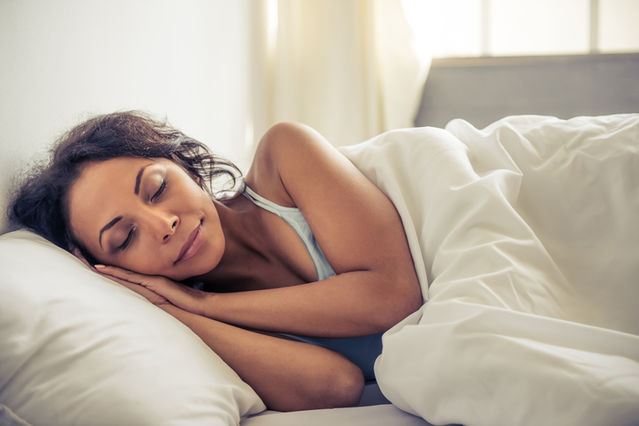
Do I Need To Sleep And Relax To Be ‘Fit?’
by Mcyveton Pierre-Louis
 We all hear that it’s important to get sufficient sleep. But maybe we’re not sure why — especially since the things we need to do to be healthy typically involve exercising and eating right. Why then are sleep and relaxation so important to overall fitness and wellness?
We all hear that it’s important to get sufficient sleep. But maybe we’re not sure why — especially since the things we need to do to be healthy typically involve exercising and eating right. Why then are sleep and relaxation so important to overall fitness and wellness?
The reasons are plenty. Mentally, getting the correct amount of quality sleep is essential to your ability to learn and process memories. It helps you be well rested so you can concentrate and focus throughout the day. Physically, sleep helps restore your body’s energy and repair muscle tissue. It also triggers the release of hormones that affect growth and appetite.
How much sleep do I need?
How much sleep you need varies based on age. The National Heart, Lung and Blood Institute recommends at least 11 to 12 hours per night for preschool-aged children, 10 hours for school-aged children, nine to 10 hours for teens, and seven to eight hours for adults.
Getting in those hours is important, but it’s also essential that the sleep is good quality. Frequent interruptions or not getting enough deep REM sleep can diminish the benefits.
Many people think older people need less sleep. Another myth is that people can “make up” lost sleep on the weekends, or that just losing an hour or so of sleep a night will not have adverse effects. The reality is that older people are more apt to have insomnia or medical conditions that disrupt sleep. And losing sleep at any time, consistently, at any age, can eventually affect your health.
If I can’t sleep, will just relaxing help?
While relaxation is not a substitute for sleep, it can be beneficial for relieving stress and anxiety, which can promote sleep. Relaxation techniques can include meditating, laying down resting, or focusing on deep breathing.
What if I have problems falling asleep?
Knowing the importance of sleep can be frustrating if you’re struggling to get enough of it. And if you do have difficulties falling and staying asleep, you are not alone. According to the Sleep Health Foundation, one out of three people experience at least mild insomnia, and women are twice as likely to have insomnia than men.
If getting sleep is challenging for you, try these tips:
- Stick to a routine. Aim to head to bed and wake up around the same time each day.
- Unplug. Try not to watch TV or work on your computer in bed. Stop an hour beforehand so your mind has time to unwind.
- Exercise. Getting the appropriate amount of exercise benefits nearly all aspects of your health, including sleep. Adults should strive for two and a half hours of moderate activity per week, and children need one hour per day. Try to increase your activity, but be sure to stop exercising two to three hours before bedtime.
- Create a sleep environment. Make sure you have the appropriate surroundings — a dark room, a good mattress, and a pillow that supports your head and neck.
- Avoid caffeine and nicotine. These are stimulants that can disrupt sleep. And smoking can cause you to wake up early due to nicotine withdrawal.
- Skip the late-night meal. Snacking is okay, but eating a large meal before bed can cause indigestion, which can disrupt sleep.
- Relax before bed. Take a hot bath, listen to music, or read.
- Do not force it. If you’re unable to fall asleep within 20 minutes, return to a relaxing activity. Lying in bed awake can result in anxiety or stress that will make falling asleep even more difficult.
Sleeping provides essential benefits, both physically and mentally. And getting enough sleep can help you stay focused, reduce stress, and function at your best.
Mcyveton Pierre-Louis is the Member Experience Director at the Littleton Family YMCA. Certified by LiveStrong, NSCA, and YMCA, Mcyveton believes exercise is about a lifestyle change. He loves to help people reach their goals and push to the next level.
